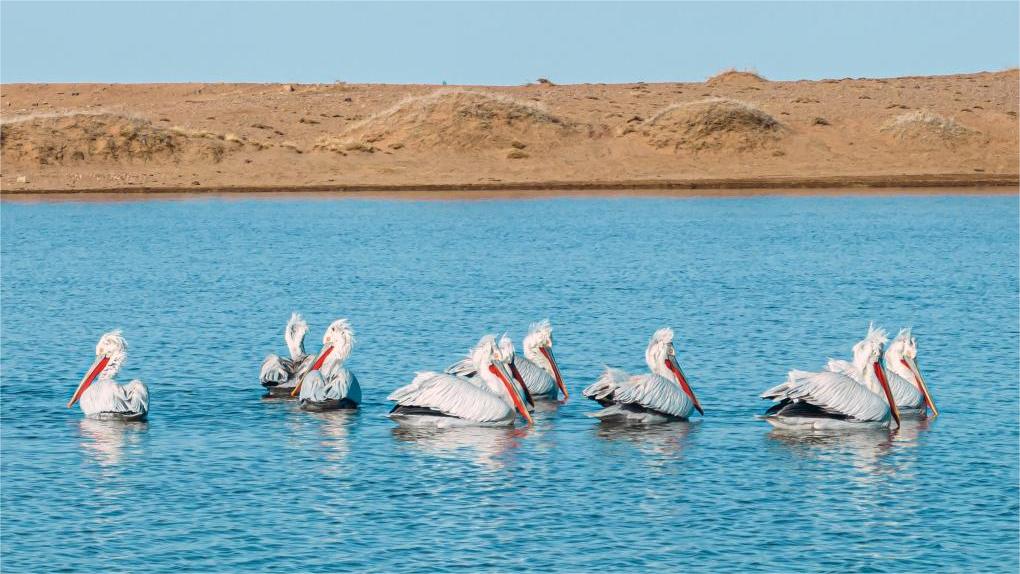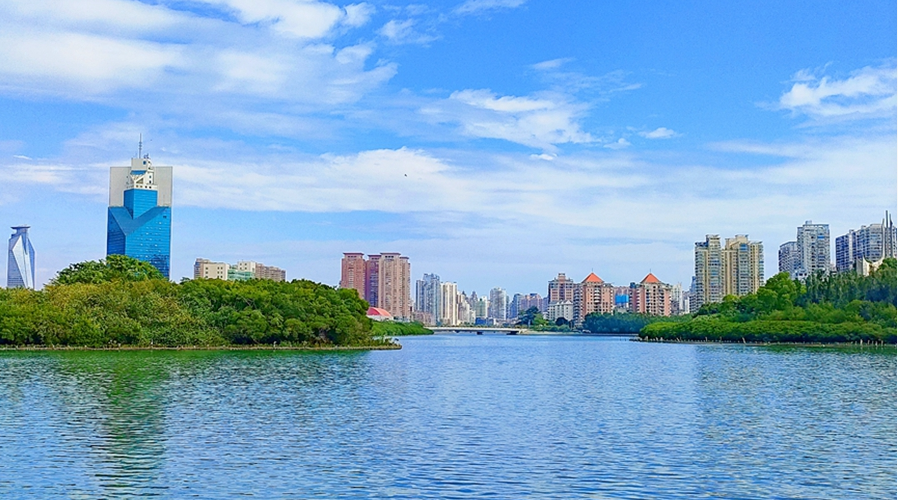Traditional Chinese medicine gains wider recognition around world
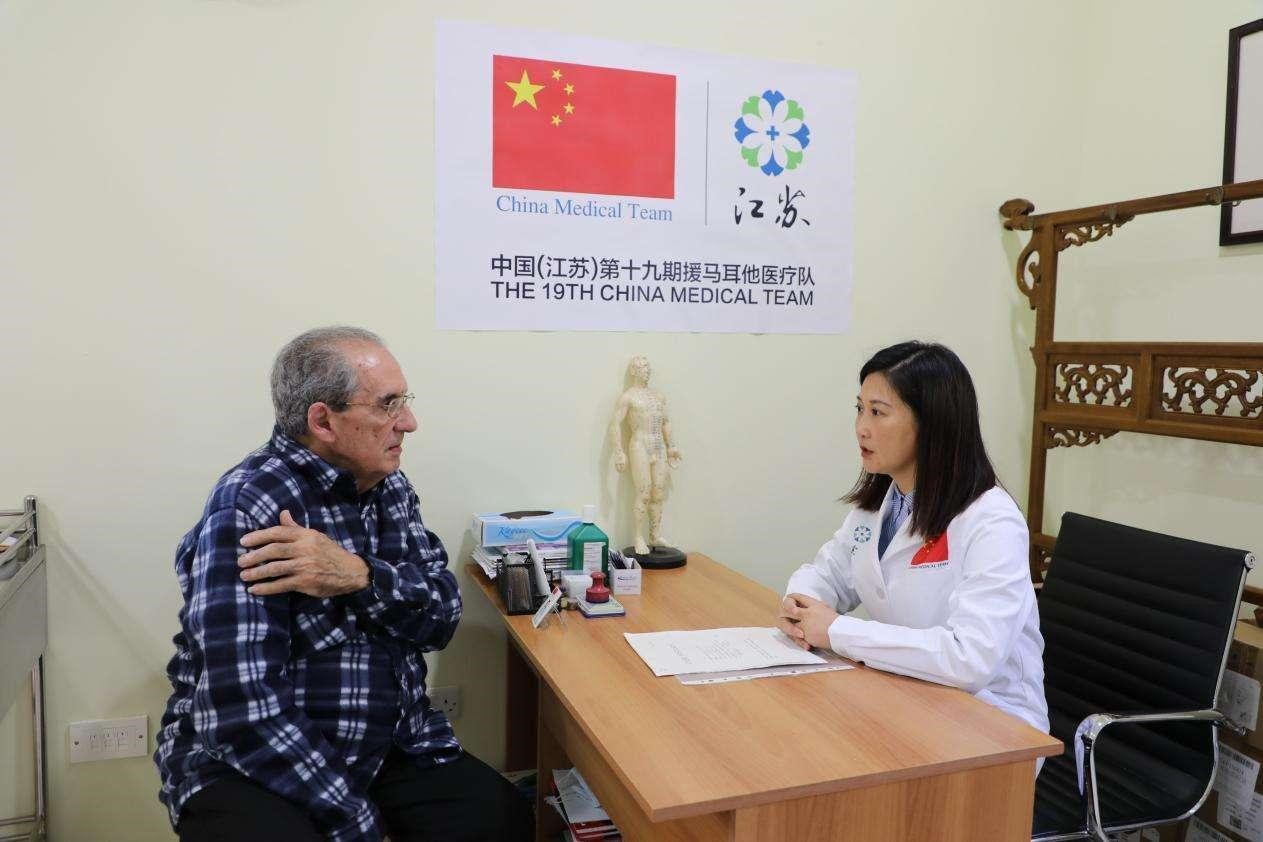
A local resident seeks acupuncture treatment from a Chinese doctor at the Mediterranean Regional Center for Traditional Chinese Medicine (MRCTCM) in Malta. (People's Daily/Xie Yahong)
Over 2,000 years ago, traditional Chinese medicine (TCM) began to spread and gain popularity along the ancient Silk Road, becoming an important aspect of commercial and trade exchanges between China and other countries.
Today, TCM has reached 196 countries and regions, gaining greater influence worldwide and making valuable contributions to people-to-people bonds and the protection of health and wellbeing of humanity.
"I'm deeply impressed by the remarkable efficacy of TCM and the expertise of Chinese doctors," said Anton Melak, a resident in Paola, Malta, at the Mediterranean Regional Center for Traditional Chinese Medicine (MRCTCM).
Melak was unable to lift his arm last year due to a right shoulder injury, and he sought immediate treatment at the center. After nearly six months of acupuncture and massage therapy, his condition significantly improved.
"I received my first TCM treatment in 1996 when I was suffering from severe migraines, which proved to be truly effective," Melak said.
In Malta, the MRCTCM has become a well-known institution for TCM treatment and training. In 2008, it opened a TCM department at Mater Dei Hospital, a state-owned acute general teaching hospital in Malta, marking the first time for TCM to be granted an independent department in a state hospital in the European Union (EU).
Since 1993, the Chinese government has sent 19 medical teams to Malta, treating approximately 250,000 patients.
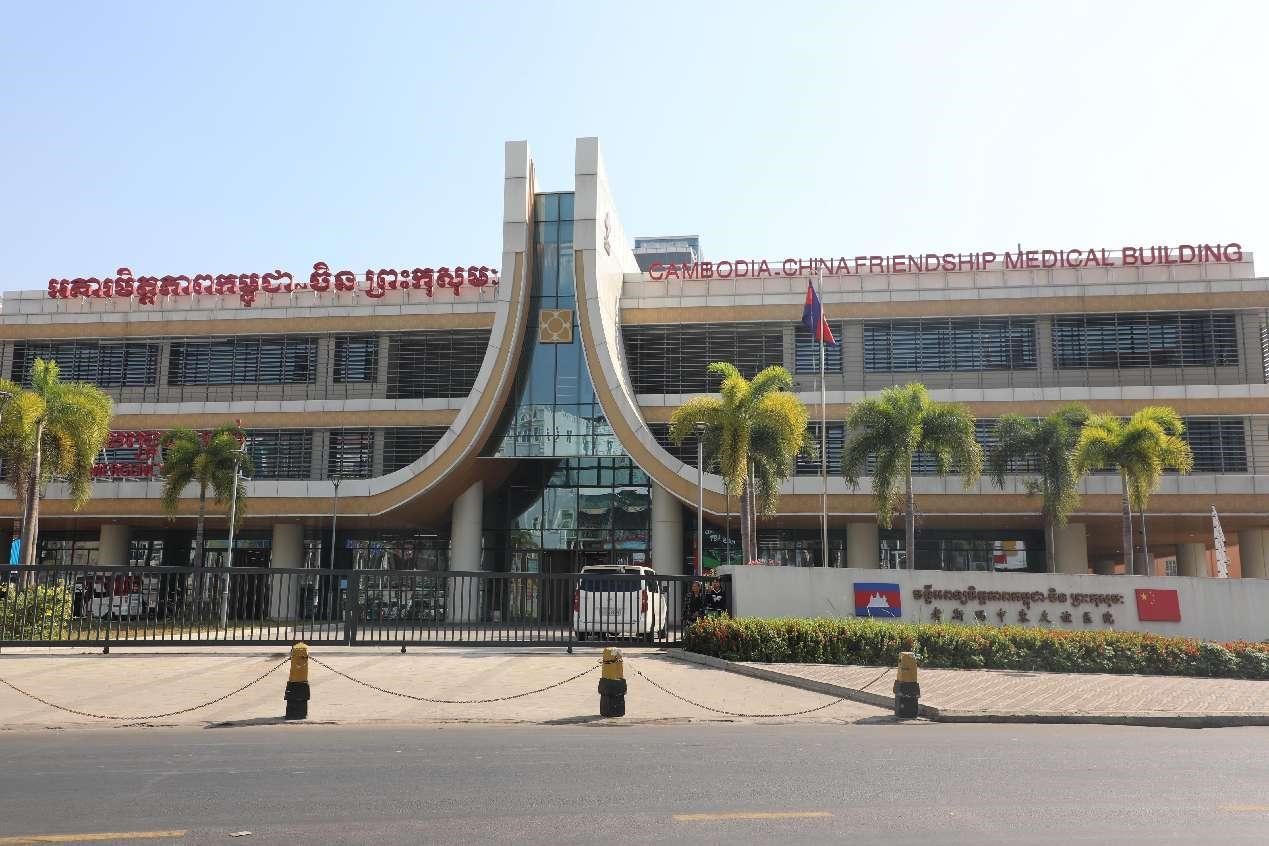
Photo shows the Cambodia-China Friendship Preah Kossamak Hospital. (People's Daily/Liu Hui)
China's medical assistance to foreign countries started over 60 years ago, and TCM has played an important role in these endeavors.
Acupuncture is among the longest-running departments in the history of Chinese medical assistance to Algeria. At the Cambodia-China Friendship Preah Kossamak Hospital, the TCM clinic set up by the Chinese medical team often sees long queues of patients. In Kuwait, the TCM treatment is popular, and there are groups of enthusiasts for Tai Chi and Baduanjin, both traditional Chinese exercises. In Guyana, the Chinese medical team has provided acupuncture treatment to tens of thousands of patients while also promoting TCM courses such as acupuncture and massage in local schools.
In recent years, China has been deepening the educational cooperation in TCM with multiple countries.
Since its official launch at the University of Johannesburg in 2020, acupuncture has become one of the most popular and competitive programs. The program admits around 50 students each year, and the number of applicants has grown from 1,285 in 2020 to 7,102 in 2022.
Michelle Delpaul was among the first students to graduate with a master's degree in acupuncture from the University of Johannesburg. She now serves as a lecturer and remains dedicated to expanding her knowledge through further studies.
With acupuncture, Delpaul has helped many patients to deal with frozen shoulder, stroke, and acute asthma. She said that throughout the years of clinical practice, she has truly witnessed the remarkable effects of acupuncture. She hopes to continue learning and share the benefits of TCM acupuncture with more people.
Shafiq, who graduated from the TCM department at Universiti Tunku Abdul Rahman in Malaysia, began his career at a TCM clinic in Kuala Lumpur last year. He told People's Daily that through the TCM treatment, his mother's migraines have been alleviated and his aftereffects of meningitis have greatly diminished over time. These experiences have reinforced his resolve to excel in TCM.
It is reported that the TCM department at Universiti Tunku Abdul Rahman has been running for over a decade and has more than 160 students. The average employment rate for graduates stands at 97 percent annually. The university has carried out cooperation with multiple Chinese universities and hospitals specializing in TCM.
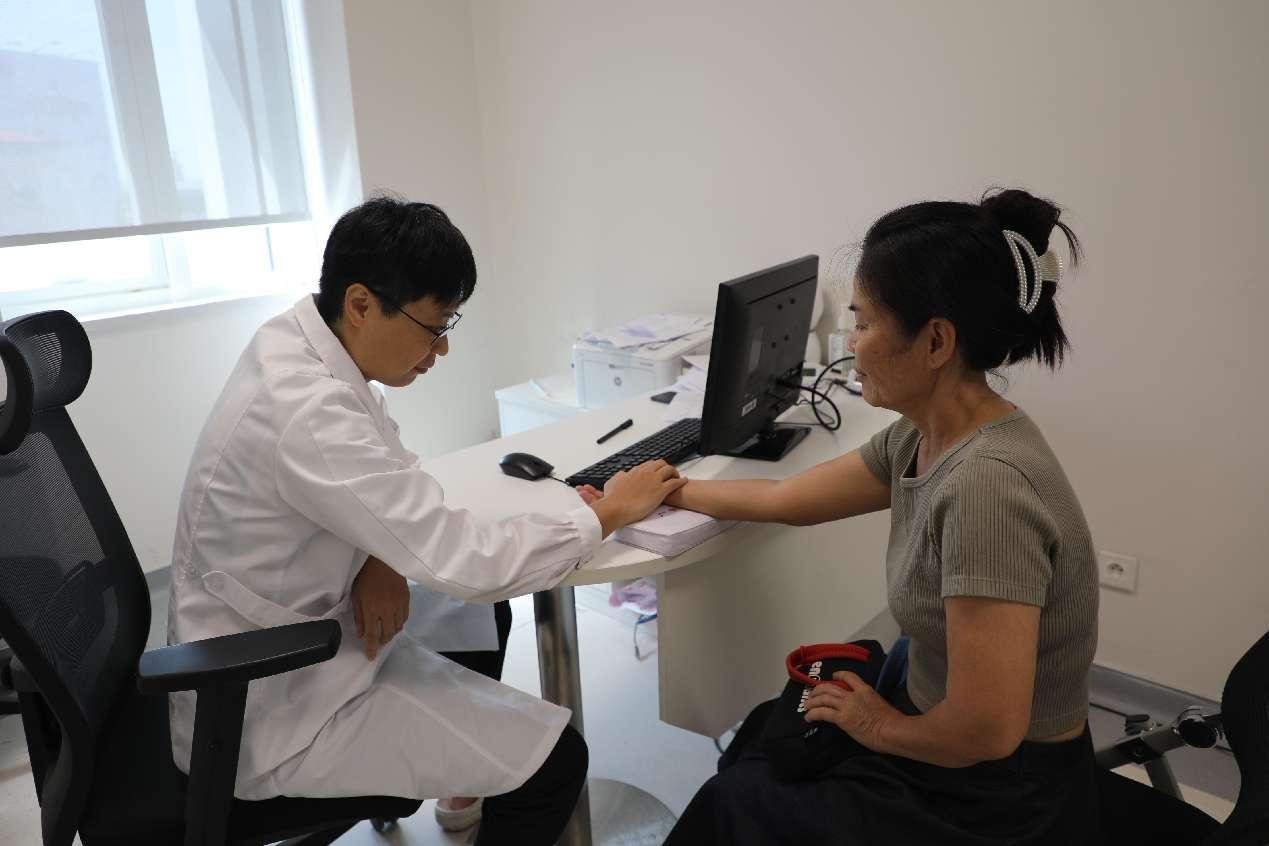
A doctor from the Chinese medical team to Cambodia makes a diagnosis for a local patient. (People's Daily/Liu Hui)
According to statistics, China's exports of TCM products exceeded $2.91 billion in the first half of 2023, an increase of 3.63 percent year on year. In recent years, China has established 31 TCM service export bases, which have evolved into comprehensive international service platforms benefiting people of different countries.
Inspired by TCM literature and supported by Chinese scientific research, artemisinin-based drugs have made significant contributions to malaria prevention and treatment in many African countries.
Over the years, China has strengthened international cooperation in TCM with Belt and Road partner countries, making solid progress in building a Silk Road of health.
China has established 30 overseas TCM centers in countries such as Russia, Thailand, and Hungary, and facilitated the registration and market entry of over 100 Chinese patent medicines in Belt and Road partner countries. Besides, China has signed traditional medicine cooperation agreements with 14 partner countries and received support for TCM development within the legal and regulatory frameworks of eight partner countries.
Raymond Busuttil, former Chairman of the Board of the MRCTCM, who had held positions in Malta's Ministry for Health and the World Health Organization (WHO), said that TCM encapsulates centuries of human wisdom and has proved to be uniquely effective in dealing with certain health conditions.
The WHO has included traditional medicine originating from TCM in the International Classification of Diseases, indicating an increasing recognition of TCM's value.
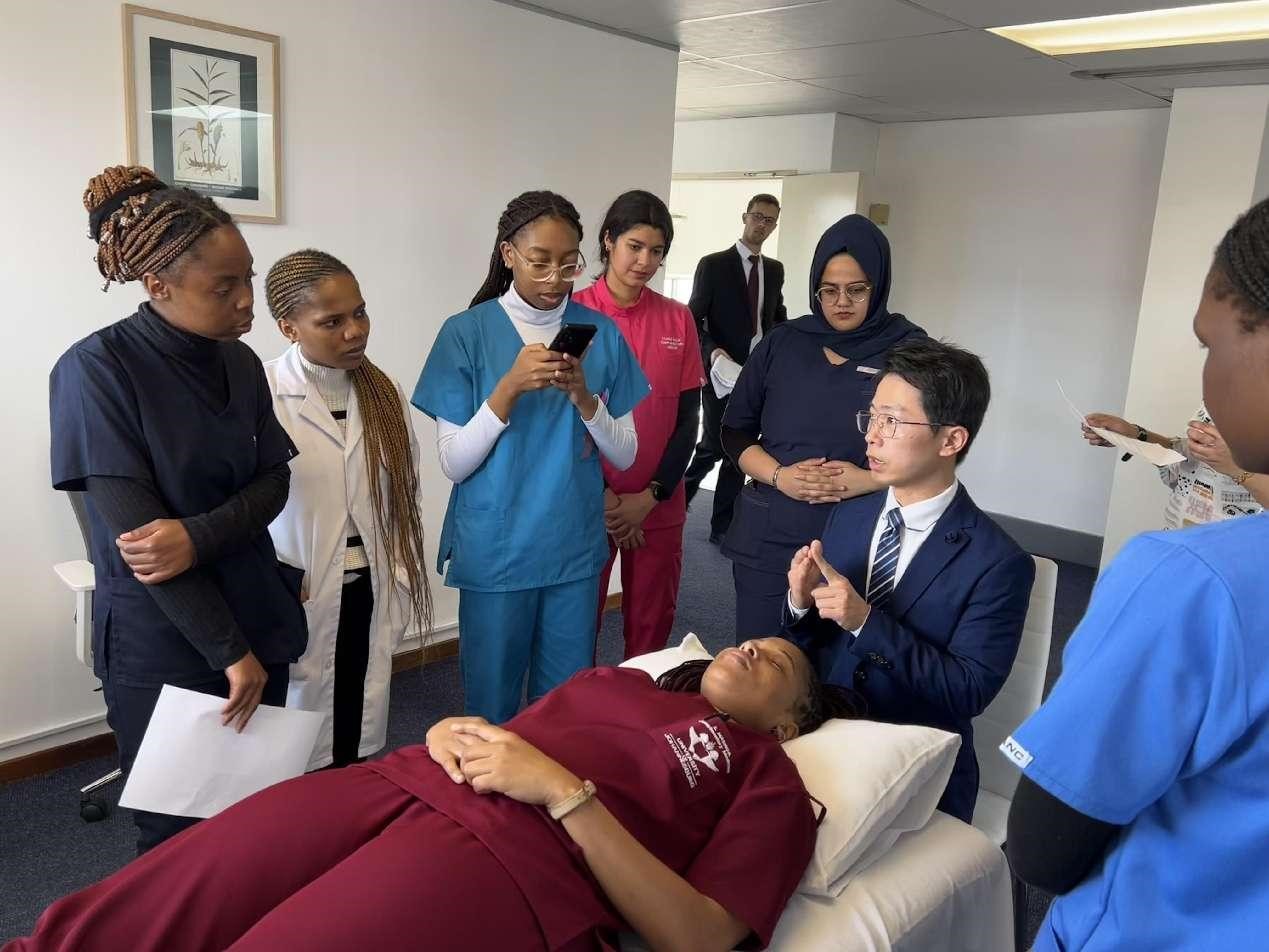
Continuing education and training were carried out for South African TCM doctors at the African Center of Chinese Medicine and Acupuncture on Aug. 19, 2023. (Photo provided by Hu Zijing)
Photos
Related Stories
- AI empowers traditional Chinese medicine to explore new potentials
- Traditional Chinese medicine brings hope to Zimbabwean patients
- Feature: Traditional Chinese medicine brings hope to Zimbabwean patients
- 96-year-old academician gives over 200 speeches to foreign audiences explaining why acupuncture anesthesia is not 'witchcraft'
- Feature: Maltese university TCM students experience moxa stick crafting
Copyright © 2024 People's Daily Online. All Rights Reserved.






